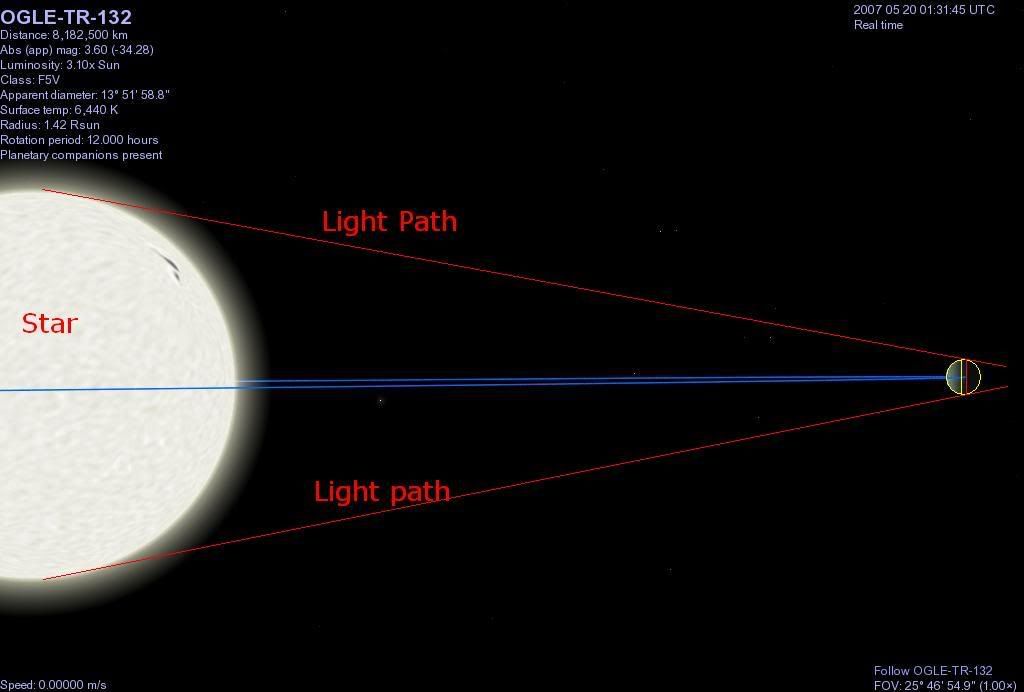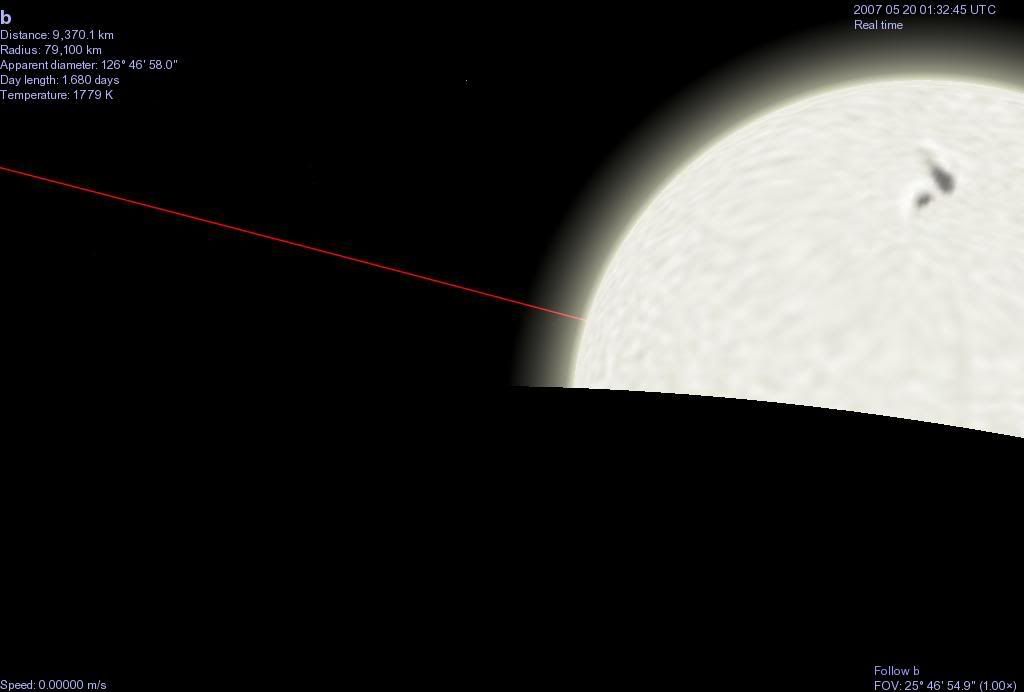Planetary illumination
Posted: 20.05.2007, 01:41
I have two ideas to help Celestia emulate reality.
1) As an object gets farther from a light sources, it gets dimmer. This already happens in double systems, so I don't see why it can't be done in single systems. Therefore we don't have objects 0.9 light years from Sol all happy and shining bright, lol.
2) Have the position of the terminator relative to the distance of the light sources.

The yellow line across the planet is where Celestia draws the terminator.
The red line is where the terminator should be.
And here's a pic of flying over the planet, and seeing it as very dark, while the sun shines brightly just above the horizon.

1) As an object gets farther from a light sources, it gets dimmer. This already happens in double systems, so I don't see why it can't be done in single systems. Therefore we don't have objects 0.9 light years from Sol all happy and shining bright, lol.
2) Have the position of the terminator relative to the distance of the light sources.

The yellow line across the planet is where Celestia draws the terminator.
The red line is where the terminator should be.
And here's a pic of flying over the planet, and seeing it as very dark, while the sun shines brightly just above the horizon.
